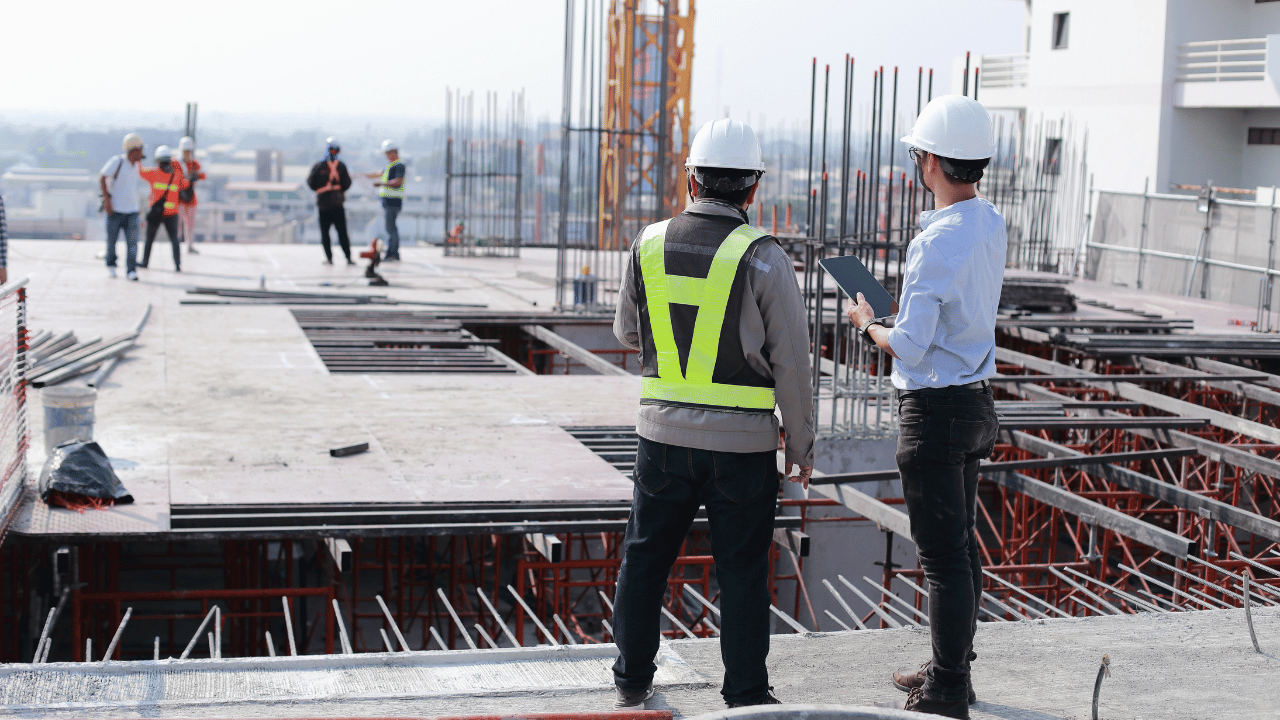
Threshold Building Inspection Guide: Here’s What You Need to Know
John Souffront

Are you looking for a reliable and affordable way to ensure the safety of your buildings? If so, you’ll want to consider using threshold building inspection.
It helps you identify and prevent dangerous structural problems, ensuring the buildings are safe and compliant with all applicable regulations.
In this blog, we will discuss threshold building inspection, certified inspectors, and their roles and best practices in-depth. By the end of the post, you’ll be aware of the process and the person to hire for such inspections. Let’s get started.
What is a Threshold Building?
As per Florida Statutes 2022 (Chapter 553 – Section 71), a threshold building refers to ” any building which is greater than three stories or 50 feet in height, or which has an assembly occupancy classification as defined in the Florida Building Code which exceeds 5,000 square feet in area and an occupant content of greater than 500 persons.”
What is a Threshold Building Inspection?
It is a special type of inspection mandated by the state of Florida on any building that is more than three stories or 50 feet in height or has an assembly occupancy classification exceeding 5000 square feet.
This inspection aims to ensure the structure’s quality and safety, and a certified special inspector must perform it. In addition, the enforcing agency may only issue a building permit for the construction of any threshold building to a licensed general contractor who is also certified in structural engineering in the state of Florida.
The inspection must take place before construction begins. Further, it will involve more inspections than just the minimum required by the state.
Why is Threshold Inspection Necessary?
Threshold inspections are important to ensure that the quality of a building takes no hit. Without these inspections, buildings may become structurally unsound and unstable due to deterioration over time.
This can lead to safety hazards such as collapsing walls, leaking roofs, or failing foundations. Additionally, insufficient insulation or ventilation can cause uncomfortable living conditions in the home.
Threshold inspections help identify any issues before they become significant problems and can even save you money in repairs down the line. A thorough examination will check for any signs of water damage, structural weakening, pest infestations, and other potential problems.
By addressing any issues and fixing them immediately, you can avoid costly repairs and keep your home safe and comfortable for years to come.
Who is a Threshold Building Inspector?
As per Florida code 61G1-25.003, a licensed structural engineer can serve as a threshold design inspector. The minimum qualifying criteria for a threshold building inspector are as follows:
- The inspector must have proof of current licensure in good standing as an architect in the State of Florida.
- They must possess three years of experience in performing structural field inspections on at least three threshold type buildings, obtained within ten calendar years preceding submission of the application and evidenced by letters of recommendation from three architects or engineers in the State of Florida, one of whom must be certified as a threshold building inspector.
- Self-certification as to the competency of the applicant to perform structural inspections on threshold buildings.
A threshold building inspector is responsible for verifying that all building components are up to code, including foundations, walls, roofs, windows, and doors.
The Roles and Responsibilities of a Threshold Building Inspector
Threshold building Inspectors are certified and licensed engineers or architects specializing in inspecting threshold buildings. Their role is to ensure the safety of a building by performing inspections to verify that the construction meets building codes and other regulations.
In addition, they inspect all aspects of the building, including its structure, foundation, mechanical systems, electrical systems, fire protection systems, and more.
They will develop an inspection plan based on local codes and regulations. With the approval of the local building official, they can perform inspections throughout the entire construction process to ensure it’s correct and safe.
During their inspections, they look for any code violations or defects in the quality which could pose a risk to people or property. They perform inspections during construction and final checks after completion to confirm that all requirements get met and to address the issues before they can allow occupancy.
The local building official must review the reports of the threshold building inspector, which include in-depth records of each inspection and any issues they find with recommendations for improvements or repairs, if necessary, before granting occupancy.
Benefits of Hiring a Threshold Building Inspector
Hiring a threshold building inspector ensures your building is safe and up to code. There are many benefits to hiring a certified threshold inspector, including protecting your investment, avoiding costly repairs, and ensuring the safety of both the building’s occupants and its surroundings.
They can detect any significant structural issue that may lead to expensive repairs
The primary benefit of having a threshold building inspector examine your property is that they can detect any potential structural issues or deficiencies that could lead to costly repairs or other problems down the road.
This includes inspecting for foundation cracks, roof leaks, gas and water line issues, faulty wiring, and plumbing problems. By discovering these issues early on, you can save yourself time and money as well as avoid potential harm in the future.
They make sure they have all the necessary permits and follow regulations
A qualified inspector will protect your property by ensuring that all necessary permits are there and any renovations or additions meet the necessary codes. Furthermore, they will know exactly what codes need to be met for construction projects.
They will inspect for proper ventilation systems, fire safety systems, sprinkler systems, and other safety features as per law so you can be sure your property is safe from any legal ramifications due to non-compliance with local regulations.
They make sure those living in the building remain safe from any potential hazard
Finally, having an experienced threshold building inspector ensures that everyone living or working in the building remains safe from potential hazards such as electric shock or carbon monoxide poisoning due to faulty wiring or heating systems.
They can also check for asbestos contamination, especially when dealing with older buildings where asbestos may have been used during original construction.
Services a Threshold Building Inspector Provides
Threshold inspections are necessary to ensure that the building meets all safety regulations and that its structural components follow the code.
The inspector will look for potential issues or discrepancies during the construction process. They report them to the proper authorities for resolution. They will also provide as-built plans, which verify that the structure construction is complete according to the approved plans.
Once an inspection request form is sent, a confirmation email will be sent. It indicates the form has been received and the inspection is scheduled.
Threshold building inspectors help ensure that any threshold building meets all of the necessary safety standards before people inhabit it.
Read: THE ULTIMATE GUIDE TO CONCRETE RESTORATION PROCESS AND METHODS
Understanding State and Local Regulations Regarding Construction Standards
Understanding state and local regulations regarding construction standards are essential for any building project. These regulations ensure that structures meet the necessary safety and quality standards, helping to protect builders, property owners, and occupants alike. In the U.S., these regulations are determined by state legislatures, municipalities, and other governing bodies.
Each state has its own set of codes and ordinances that one must follow when constructing a building or structure.
These regulations generally address issues such as the overall size of a structure (including height restrictions), the types of materials used in construction, fire safety requirements, energy efficiency guidelines, and more. They also specify detailed requirements for certain types of buildings, such as hospitals, schools, or arenas.
Additionally, individual municipalities may have their own specific rules related to zoning or land use that may apply to a project in their jurisdiction.
Consulting with governmental agencies and contractors familiar with the area’s construction standards is essential. It ensures adherence to all applicable state and local regulations when constructing a building project. It helps avoid costly fines or delays in the completion of projects due to noncompliance with existing laws or ordinances.
Best Practices When Conducting Inspections in Different Settings (For the Inspector)
When conducting inspections in different settings, there are certain best practices to follow. It will ensure accurate and thorough inspections.
Have the required certifications from an appropriate authority
First and foremost, inspectors need to be certified by the appropriate authority. This helps to guarantee that the inspector has received the necessary training and experience to evaluate a property accurately. Additionally, inspectors should have access to a comprehensive inspection plan outlining all required steps and procedures to inspect a property.
Must be knowledgeable of the applicable regulations regarding their area of expertise
Inspectors are familiar with applicable regulations regarding their area of expertise and any specific regulations pertaining to their inspection site. It is also crucial for inspectors to maintain an up-to-date checklist of items they need to inspect. This ensures accuracy and efficiency during the inspection process.
Must follow the applicable laws or regulations as per the workplace environment
An effective inspection process must include safety protocols and following all applicable laws or regulations related to the workplace environment. The safety protocols include:
- Proper use of protective gear and equipment
- Maintaining safe working distances from hazardous materials or situations
- Understanding emergency procedures for potential accidents or hazards encountered on-site
Inspectors must strictly adhere to applicable privacy laws or regulations when conducting an inspection inside someone’s home or business.
Exercise better judgment while identifying safety risks
Finally, threshold building inspectors must exercise good judgment when identifying and evaluating safety risks within a property. Further, they must document their findings in an organized manner. It ensures that any future inspections remain consistent with prior ones conducted at the same property site.
Following these best practices help ensure accurate Threshold Building inspections that provide sound advice regarding any property in inspection.
Conclusion
Threshold inspections are extremely crucial, as per Florida law. It helps keep the structural aspects of a building safe and prevent any disasters. Souffront Construction and Engineering can help you with the process if you’re in search of a certified threshold inspector. Our structural building inspector will sit with you to discuss the issues and needs and guide you in a structured manner to get your threshold inspection done in no time. So, hop on a call with our client support team today.
You can also read the following:
- How Structural Inspections Can Prevent Accidents and Grow Building Life
- A Complete Guide To 40 Year Recertification (Miami-Dade and Broward)
John Souffront
John Souffront is a seasoned leader in the construction and engineering industry, with over a decade of experience at the helm of Souffront Construction & Engineering. Known for his unwavering commitment to excellence and innovation, John has propelled his firm to the forefront of the field, delivering cutting-edge solutions for complex projects around the country.
Build Your Project
Ensure safety and compliance on your construction site with our experienced team. Call us today.
Contact Us

